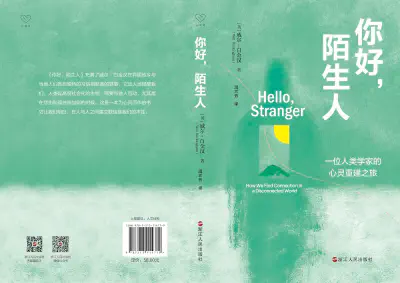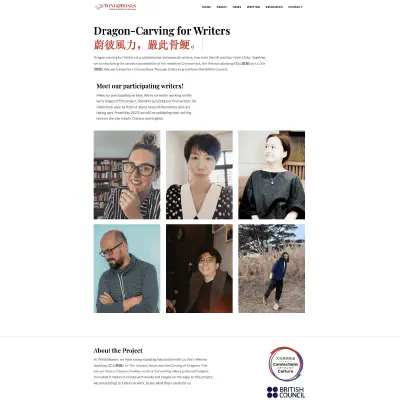This article was first published on the Startup.
If you are trying to write, but not getting anywhere, maybe you are just not working hard enough. But maybe the reverse is true. Maybe you are not lazy enough. Maybe you just need to slack off.
I’ve been thinking about the role of laziness in creativity ever since stumbling across Poets’ Jade Splinters. The book is an anthology on the art of writing by the thirteenth century Chinese writer Wei Qingzhi. The passage that really struck me, in Tony Barnstone and Chou Ping’s translation, reads like this:
inspiration enters at the border between hard work and laziness.
In the original Chinese, the text suggests inhabiting these borderlands between hard work and laziness is a skill. My own translation is much less elegant than Barnstone and Ping’s, but brings out this idea of skill more clearly:
the principle by which we awaken to understanding is precisely where we are skilled at being between diligence and idleness
But what is this skill? It may seem like ‘flow’ in psychology, made famous by Mihaly Csikszentmihalyi. According to Csikszentmihalyi, flow is optimal human experience. Famously, it is that sweet spot between boredom and anxiety. It is that place where the difficulty is neither so great that you get frustrated, nor so little that you get bored. Flow is hard work that doesn’t feel like hard work. It is the place where we are optimally productive.
But despite superficial resemblances, Wei is getting at something different. The trouble with flow is that it conflates optimal human experience and optimal productivity. In doing so, it takes the view that what is most fundamental to human existence is that we are _producers _engaged in tasks.
But Wei is getting at something more fundamental than flow. He is not talking about peak experience or peak productivity. In fact, we can only stumble into these borderlands between hard work and laziness when we get our heads round the idea that productivity itself is not optimal. We can only find this space between diligence and idleness when we give up on the idea of flow.
The difference between Wei’s borderlands and Csikszentmihalyi’s flow becomes obvious when you drill down a bit. In their article in the Handbook of Positive Psychology (Oxford University Press, 2002), Csikszentmihalyi and Nakamura set out the following characteristics of flow.
Intense and focused concentration on what one is doing in the present moment
Merging of action and awareness
Loss of reflective self-consciousness (i.e., loss of awareness of oneself as a social actor)
A sense that one can control one’s actions; a sense that one can in principle deal with the situation because one knows how to respond to whatever happens next
Distortion of temporal experience (typically, a sense that time has passed faster than normal)
Experience of the activity as intrinsically rewarding, such that often the end goal is just an excuse for the process.
But this is nothing like what Wei is talking about. There is too much focus, too much sense of direction, too much orientation towards goals. There is too little breadth, too little slackness, too little openness to the complexities of experience.
Instead of flow, Wei is suggesting that the optimum creative state is this mysterious place between hard work and laziness. The term that Wei uses for ‘laziness’ is duo. It means something like ‘nonchalance’, ‘languor’, ‘dissipation’, or ‘negligence.’ It is loose, easy-going, irresponsible. And the term he uses for ‘work’ is qin. It can mean ‘to work hard’ or ‘to try.’ But it also means things like ‘to be constant’, ‘to serve’, ‘to be devoted’, ‘to do regularly’, or ‘to take care over.’
This border between hard work and laziness is not flow. It is something quite different. It involves showing up, putting in the time, making an effort, a devotion to what you are doing, being constant, and taking care. This is the hard work. But it also involves being nonchalant, being dissipated, losing our focus, being negligent, slacking off. This is the laziness.
What Wei seems to be suggesting is that if you can do both of those, more or less at the same time, then things _really _start to happen.
What I get from Wei is this: the idea that our concern with productivity, and with flow, may be the very thing that gets in the way of us creating things that matter. Perhaps our problem is not that we are too unproductive, but that we are too hung up on productivity. If we care about awakening to new understandings of ourselves and of the world, it may be that we could do no better than taking time to bunk off.
It is worth a try, at least. So now I’ve finished writing this, it’s time for some dissipation. I’m going down to the beach to look at the sea and watch the waves come in. Or to drink a beer. Or just to lounge around irresponsibly in the sun.
And I’ll see what happens next.
Notes:
- The unedited Chinese text of Poet’s Jade Splinters (詩人玉屑) is available here on ctext.org. The quote comes from scroll five of the text, which reads ‘悟入之理,正在工夫勤惰間耳’.
- For a translation of the whole text, see Tony Barnstone and Chou Ping’s small anthology of over a thousand years of writing advice from China, The Art of Writing: Teachings of the Chinese Masters (Shambhala 1996).



